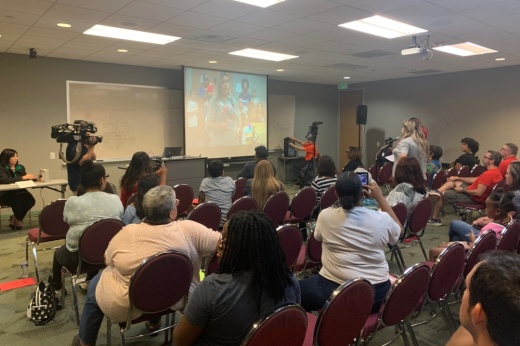All nine of the board members were appointed by the Texas Education Agency as part of a takeover of the district that went into effect June 1, an intervention that has been met with opposition from Houston leaders and public education groups.
HISD Superintendent Mike Miles is also new on the job. During a June 15 budget workshop, Miles acknowledged the budget largely reflects what the previous administration crafted. However, Miles laid out several changes he plans to make to the budget as well as other conversations that are likely to come up over the course of the next school year.
How we got here
The TEA took over HISD citing reasons related to academic performance at Wheatley High School and allegations of misconduct against school board members, though many community members within the district have denounced the takeover as undemocratic and have questioned the motives.
HISD's former Superintendent Millard House II and his administration had been working on the district's 2023-24 budget up until being removed from their positions earlier this month. House, who joined HISD in 2021, was in the process of rolling out a five-year strategic plan, which included teacher raises and cutting central office spending.
The district has been facing a fiscal cliff, one that remains at the center of the conversations heading into the 2023-24 school year. HISD's enrollment has fallen by about 27,000 students since 2017.
A closer look
The proposed 2023-24 budget includes $2.2 billion in general fund revenue and just under $2.4 billion in expenditures, setting up a shortfall of $168.5 million. However, Chief Financial Officer Jim Terry said roughly $70 million is projected to return to the district in unspent funds by the end of the year to partially plug that hole.
The framework
Miles said he thinks the district needs to do a better job of prioritizing spending. To that end, he announced intentions to use a 60-20-20 zero-based budget model, which involves each department dedicating 60% of its budget to top priorities, 20% to secondary priorities and 20% to tertiary priorities.
Dig deeper
Miles plans to set aside $106 million for his Destination 2035 plan, a plan for which few details have been released but Miles said he plans to discuss more in depth at a future meeting. The plan is largely about addressing the highest-needs areas quickly, Miles said June 15.
The $106 million will be made up by cutting salary commitments made with Elementary and Secondary School Emergency relief funding by $25 million; cutting the vendor contract budget by $50 million, leaving $200 million; and cutting the central office budget by $30 million. The deadline for spending ESSER money is September 2024.
What to expect
Miles laid out some plans for how he said budgets will be handled starting next year. In January 2024, the district will release a draft action plan, which will be followed by the draft budget, and the two plans will be worked on in tandem. In March, the district will give a preliminary revenue forecast, and department budgets would be finalized in April. Drafts of the district action plan and budget would be presented to the board in May, prior to adoption in June.
Miles said he also wants to look at the district's use of hold harmless—when the district pays a school a certain amount to make up for funding lost from declining enrollment—and a small school subsidy program that involves providing funding to smaller schools to make sure they don't lose out on program opportunities.
Miles said he was not recommending making any changes to those systems this year, but hinted at future conversations down the line. HISD spends about $28 million on hold harmless and $33 million on the small school subsidy in the 2023-24 budget.
Quote of note
"That is a process for aligning the budget well with your priorities," Miles said of getting the budget draft plan released earlier. "We were not able to do that this time of course, so instead of changing the budget ... we are going to try to prioritize our needs."





